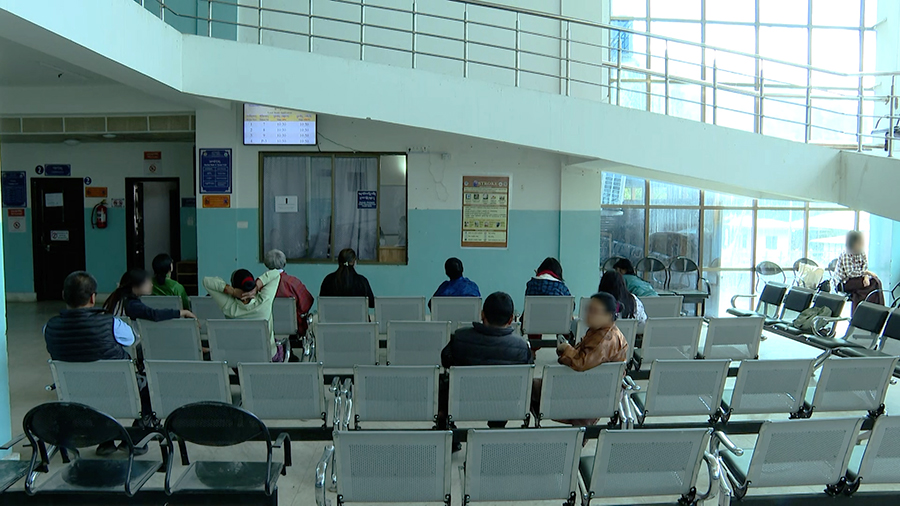 The number of people availing themselves of traditional medicine services has been on the rise in Bhutan. More than 219,000 patients received the services last year alone, a nearly 12 per cent increase since 2020. With more patients turning to traditional medicine, production of traditional medicine is also rising.
The number of people availing themselves of traditional medicine services has been on the rise in Bhutan. More than 219,000 patients received the services last year alone, a nearly 12 per cent increase since 2020. With more patients turning to traditional medicine, production of traditional medicine is also rising.
The practice of traditional medicine in Bhutan dates back to the eighth century and continue to be a vital component of the healthcare system.
 People from distant districts also visit the Traditional Medicine Hospital in Thimphu, drawn by the effectiveness of the treatment.
People from distant districts also visit the Traditional Medicine Hospital in Thimphu, drawn by the effectiveness of the treatment.
Chedon from Pema Gatshel said “I have gastritis, headache, back pain, and joint pain. I have been taking traditional medicines for ten years. After undergoing treatment here, I feel much better. Initially, I could not even walk, but now I can visit the hospital on my own.”
Dorji from Haa said “I came here in Thimphu to attend the religious event happening at Kuenselphodrang. Today, I am here to treat my knee pain.”
Lungten from Trashigang said “This is our first-time visiting Thimphu for a checkup. After visiting the hospital, the swelling and pain in my leg have subsided. Today is my final treatment. From now on, even if I have a stomachache or a headache, I will opt for nasal cleansing and acupuncture services.”
 Physicians from the hospital said the majority of the patients are suffering from orthopedic and neurological problems, sinusitis, and stomach related diseases that are caused by unhealthy eating habits.
Physicians from the hospital said the majority of the patients are suffering from orthopedic and neurological problems, sinusitis, and stomach related diseases that are caused by unhealthy eating habits.
Drungtsho Karma Gaylek, Medical Superintendent of National Traditional Medicine Hospital under the National Medical Services said “The reason for the increase in patients seeking traditional medication over the years would be because, in three regions, Dungtsho are creating awareness about the traditional medication. Another might be because of the health camps that we conduct in the districts for those who are unable to come here, providing them the services that are available only at the National Traditional Medicine Hospital.”
 Ultimately, this has led to increased demand for traditional medicine and health supplements at the Menjong Sorig Pharmaceuticals Corporation.
Ultimately, this has led to increased demand for traditional medicine and health supplements at the Menjong Sorig Pharmaceuticals Corporation.
The corporation has been earning millions of ngultrum annually through domestic market and international exports.
Tshering Tenzin, the Chief Executive Officer of Menjong Sorig Pharmaceuticals Corporation said “We have been able to provide all the necessary medicines required for the government hospitals. At the same time, we also produce health supplements. If you look at the trend, we have improved a lot and for the last two years, we have crossed 100 million ngultrum in sales revenue.”
Unlike traditional processes of medicine making, the company incorporates modern ways without compromising the quality.
The company said the quality of products is ensured through vigorous quality control checks and samples retained for future reference.
As of now, the company produces 110 types of age-old herbal medicines and 30 types of health supplements.
Kelzang Chhophyel
Edited by Tshering Zam









